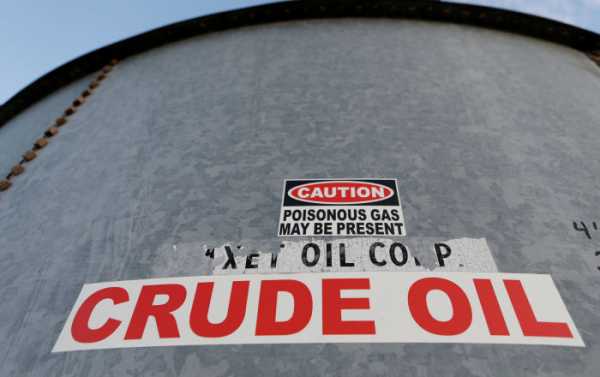
Earlier Friday, after refusing to slash oil production by 400,000 barrels per day (bpd), Mexican President Andres Manuel Lopez Obrador said his country would agree to cut 100,000 bpd, with the US pledging to cut an additional 250,000 bpd on Mexico’s behalf. Mexico is the last major producer apart from the US that has yet to agree to reduce output.
The US is talking to the Saudis, Russia and OPEC+, and trying to get Mexico on board to agreeing to major cuts in oil output in a bid to eliminate the global crude glut and to stabilize prices, President Donald Trump has said.
“As you know, [OPEC+ is] trying to get rid of the glut of oil, there’s a tremendous glut of oil, and we don’t want anything to hurt our incredible [oil] industry. We’re actually the largest producer in the world now, so we don’t want anything to hurt those jobs,” Trump added.
The US president expressed confidence that global producers would work out a deal on global oil output “eventually,” possibly “quicker than what most people thought possible.”
‘Generous’ US Offer of Assistance
Trump’s comments follow remarks by Mexico’s president earlier Friday that Mexico would stick to its agreed upon 100,000 bpd cut in output, with the US “generously” agreeing to cut 250,000 bpd more on Mexico’s behalf.
Also on Friday, the Kremlin confirmed that President Putin had spoken to his US counterpart regarding the situation on the global oil market and the OPEC+ deal on cutting production by a whopping 23 percent, or roughly 10 million bpd globaly, over three stages.
Washington itself has not joined OPEC+’s plans for coordinated cuts, suggesting that its own output (presently the largest in the world) would fall ‘naturally’ over the next two years through market forces including downward pressure on prices which is said to have already cut about 2 million bpd in US output. The Trump administration has been eager to see the materialization of an OPEC+ deal amid concerns over the fate of America’s shale oil industry, which depends on higher oil prices to cover higher production costs. Earlier this week, the The Wall Street Journal reported that the administration was considering tariffs, and possibly even new sanctions, to get major competitors including Russia and Saudi Arabia to cut their output.
Oil prices collapsed to their lowest levels in decades last month after OPEC+ failed to agree on cuts in crude output amid the global economic slowdown caused by the COVID-19 pandemic.
Sourse: sputniknews.com






